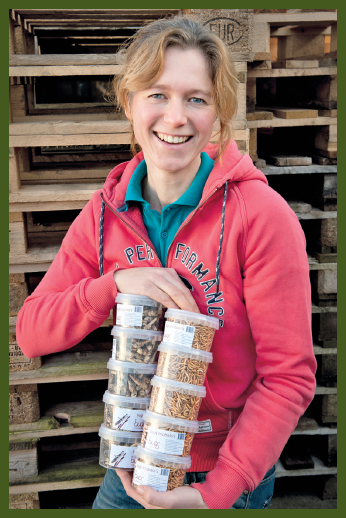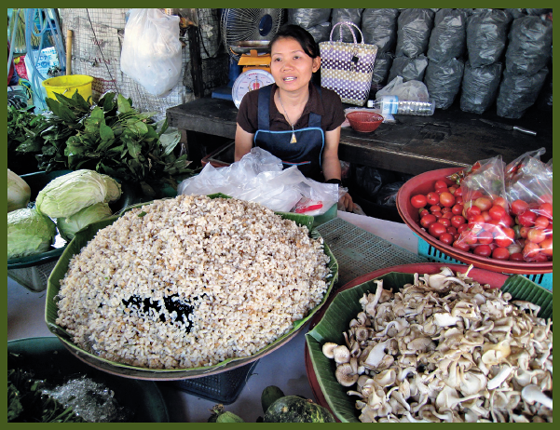Information Resources
The Laboratory of Entomology at Wageningen University, the Netherlands, conducts research on the biology of insects and the ecological relationship of insects with other organisms. In addition to fundamental research to elucidate how insects function in their environment, applied research is directed toward using insects for societal applications and preventing problems caused by insects in agriculture and in human and animal health. For background information regarding insect consumption—including a list of all insects that are known to be eaten, articles, and links to other Web sites—see www.wageningenur.nl/ent and click on “Edible insects.”
Margje Calis carrying packaged freeze-dried insects. (Lotte Stekelenburg)
The Food and Agriculture Organization of the United Nations (FAO) publishes interesting information about insect consumption worldwide. For guides, publications, and links to other Web sites, see www.fao.org/forestry/edibleinsects/en/.
The International Insect Centre (www.insectcentre.com) regroups all actors in the value chain dealing with insects as food and feed.
Venik (Dutch Insect Farmers Association [www.venik.nl]), the first organization of insect farms in the world, introduced insect farming to the Western world.
Suppliers of Insects for Human Consumption
Insects farmed for human consumption in the Netherlands (Bugs Organic Food) can be obtained from Ruig and Sons at Bugs Originals (www.insects4food.org). In the United States, edible insects are available from World Entomophagy (www.worldentomophagy.com).
Weaver ant pupae at a market in Laos. (Arnold van Huis)
Boy carrying a bowl of kungu cakes in Malawi. (Midori Yajima)



